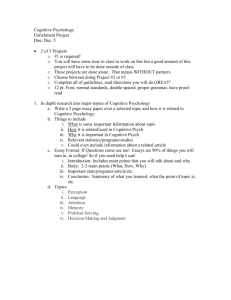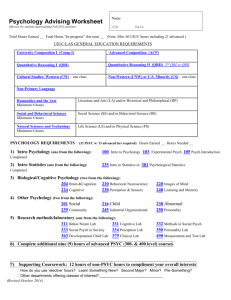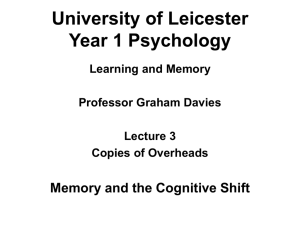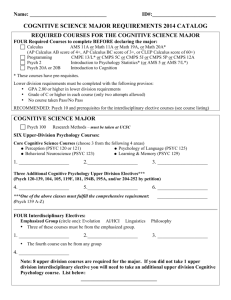presentation slides - Martin Reisslein
advertisement
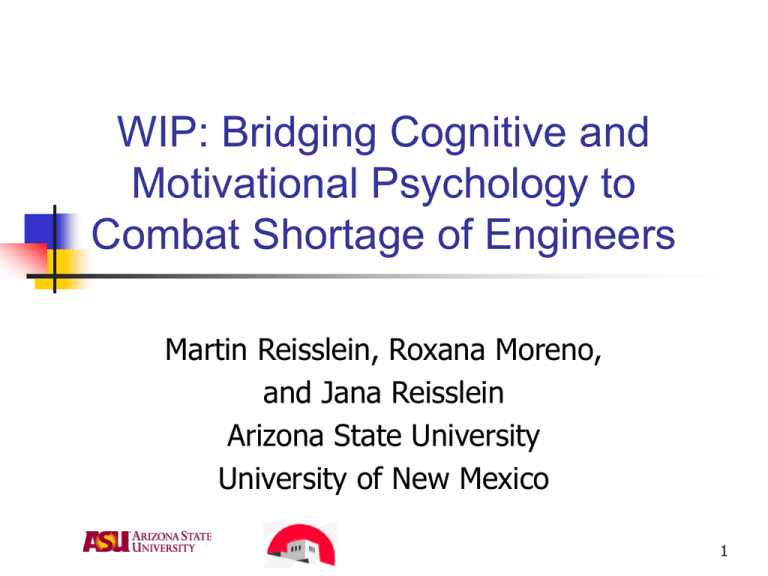
WIP: Bridging Cognitive and Motivational Psychology to Combat Shortage of Engineers Martin Reisslein, Roxana Moreno, and Jana Reisslein Arizona State University University of New Mexico 1 Challenge and Overall Approach Challenge: Technology based U.S. society requires skilled engineering workforce Low popularity of engineering among domestic students Overall Approach: Cross-disciplinary team of engineers and psychologists Uncover fundamental techniques to increase effectiveness of engineering ed/ popularity of eng. 2 Prominent Causes for Eng. Shortage Low awareness of engineering Less than half of U.S. population aware of what engineers do Less than quarter of U.S. females Overly challenging eng. programs Significant attrition from freshman to graduating senior Persistence in eng. programs low 3 Approach: Bridging Psych. with Eng. Cognitive Psychology Motivational Psychology Minimize cognitive load, foster self-efficacy Maximize persistence Rigorous evaluations Importance of cultural context, social relevance Bridge these two psych. areas with engineering, computer science 4 Related Work Increasing effectiveness of eng. ed. has received significant interest, e.g., individual learning styles Also, successful engineering approaches have been investigated, e.g., teaming This work complementary by focusing on psychological underpinnings of engineering learning 5 Input from Cognitive Psych. Applicability of techniques for fostering selfefficacy, e.g., worked examples, multimedia learning Primarily investigated with psychology students in social science/probability domains Do these techniques carry over to engineering? Extend and adapt to engineering, or identify principles unique to engineering 6 Input from Motivational Psych. Impact of cultural context and social relevance on persistence E.g., Keller’s ARCS (Attention, Relevance, Confidence, Satisfaction) model of motivational design: Expose learner to instruction that relates to previous experiences, needs, interests But, large portion of population unaware of what engineers do Unique challenge of engineering ed. 7 Preliminary Results Cognitive aspects of effective representation of engineering instructional content High school students w/o prior engineering ed. College level engineering students Textual representation of instructional prompts more effective than graphical representation, effect size Cohen’s f = 0.38 Text/graphics combination more effective than text/ equations combination, effect size Cohen’s f = 0.31 Indications of importance of appropriate learning content representation Comprehensive, rigorous study needed 8 Dissemination Research outcome: techniques with rigorously verified levels of effectiveness Derive guidelines for educational modules Employ to Increase awareness/ interest among high school students Reduce cognitive load in eng. courses Increase persistence in engineering programs 9 Conclusion WIP to thoroughly understand cognitive and motivational psych. principles of eng ed. Rigorously verified in empirical studies Important component in effort to attract and retain qualified students and alleviate engineer shortage 10
